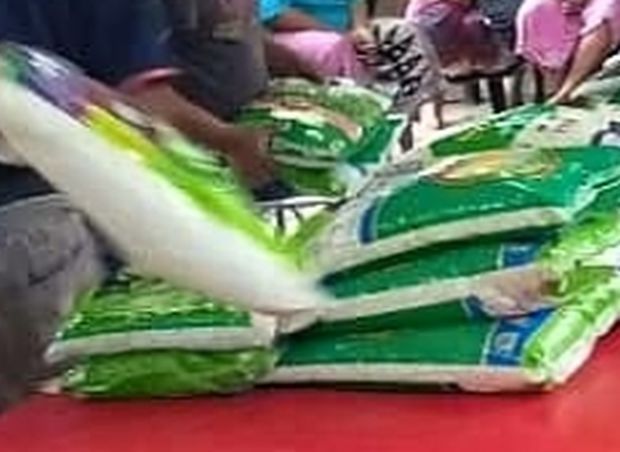ON Monday, I had two slices of wheat germ bread and six sausages. I only ate three-fourths of the bread and threw away the rest.
As I disposed of them in the garbage bin, I felt a pang of guilt. I felt that I was behaving like the characters in The Platform, a Spanish thriller I had watched the night before. I could have given food to the homeless in Kuala Lumpur who have gone hungry during the movement control order (MCO).
The Platform is about a tower- like prison with a number of levels, where each level holds two prisoners. Those on the top level get the first dip of the grand feast, which is sent down on a platform through the middle of the room. The lower you are, the less food you get on the platform. There should be enough food for all if everyone eats only what they need. But those on the top levels do not care if those below them die of hunger or eat each other to survive.
Just like the prisoners who eat more than what they need, I too have been eating more than what I need during the MCO.
After breakfast, I went for my medical check-up, and I found out that I had gained about 4kg. The MCO has made me eat more (boredom combines well with butter cakes and home-cooked fish curry head), and I have not been able to go for my regular hike on the Wawasan Hill trail in Puchong, Selangor.
Forbes called The Platform the perfect parable for a pandemic.
“The Platform is an incredible film that satirises the rampant inequality of modern life, and happens to resemble the creeping claustrophobia (and weird paranoia) of life in quarantine,” wrote Dani Di Placido on Forbes.com.
“It’s a wonderful metaphor for the towering terror of capitalism, every individual indulging while enjoying their time at the top, while the unseen masses at the bottom eat each other alive. The system benefits almost no one, but stubbornly resists change, incentivising each individual to take as much as they can, while it’s there.”
Over the phone, I discussed The Platform with Datuk Dr Amar Singh HSS, who is making a name with his analysis of the Covid-19 pandemic.
Dr Amar is not a fan of the movie.
“I try to avoid this fairly hopeless movie – there’s a glimmer of hope in the end, but it was not explained. The movie talks about the basic animalistic nature of man. It talks about the hierarchy structure. But I don’t think it is a good reflection of the Covid-19 situation,” said the National Early Childhood Intervention Council advisor.
“Of course, there is panic buying in supermarkets and some people who are stingy, but there are extraordinary people who are generous around me. People are banding together – I am part of a smaller group – to try to reach out to people who are left out,” he said.
I agree with him.
There are Malaysians who are like Goreng, the protagonist in The Platform who tries to feed the prisoners in the floors below him. They have come forth to help those in need during the Covid-19 pandemic.
Dr Amar said what is hampering the NGOs’ efforts to help the needy is the police who have restricted them from travelling – making it difficult for them to reach those who need help. He said that the government must give more freedom to NGOs to help those in need.
“Those working for the NGOs are smart. They are not going out there and exposing themselves to Covid-19. They are careful about it. They know where the need is as they have been doing this work for a long time. It would be better for the government to partner with NGOs,” he said.
Many people are helping fellow Malaysians in this challenging time where people can’t earn a living because of the MCO. They also face bureaucracy in their charity effort.
Lawyer Anuar Ghani has been WhatsApp-ing me on how Osimal Foundation under Tan Sri Richard Malanjum, the former Chief Justice of Malaya, has taken proactive action of ordering reagents, personal protection equipment (PPE), face masks, sanitisers and ventilators. However, according to him, Osimal Foundation has faced administrative issues from the bureaucracy to secure the equipment.
Anuar also noted that politicians and political parties have also been busy donating money and going to the ground. However, he said, they are discovering that unlike natural disasters which were localised, the needs of the people in the pandemic are ubiquitous and unrelenting.
“No politician has ever faced such a wide cross-sectional need for assistance from the people,” he said.
Anuar noted the rural and urban poor need basic sustenance such as rice (5-10kg), salt (500g) sugar (1kg), cooking oil (1 sachet), canned food (a few cans of sardines).
“How long the pack lasts depends on the number in the household,” he said.
The food for thought I got from The Platform is we can make a difference if those in the upper level help those at the bottom level. We also need to make charity work less bureaucratic.


